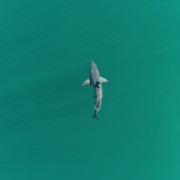- Science News
- Frontiers news
- Frontiers Impact Factors rise as volume increases: quality at scale
Frontiers Impact Factors rise as volume increases: quality at scale
In 2016, Thomson Reuters published the journal Impact Factors (2015 Journal Citation Reports (R), Thomson Reuters, 2016). Frontiers has 19 journals listed, and several more have already been approved for the 2016 edition.
The highlights included Frontiers in Immunology, which received its very first Impact Factor of 5.695 this year, placing it in the top 16% of its category and top 5% overall. Frontiers in Neurology also entered the list with a value of 3.184.
The full list of Impact Factors can be found in the table below.
Journal | IF 2015 | IF 2014 | |
5.695 | |||
5.218 | 3.719 | ||
5.154 | 4.084 | ||
4.609 | 4.289 | ||
4.495 | 3.948 | ||
4.418 | 3.802 | ||
4.348 | 4.000 | ||
4.165 | 3.989 | ||
4.031 | 3.534 | ||
3.879 | 3.568 | ||
3.634 | 3.626 | ||
3.398 | 3.656 | ||
3.392 | 3.270 | ||
3.260 | 3.544 | ||
3.184 | |||
3.047 | 3.261 | ||
2.653 | 2.201 | ||
2.463 | 2.560 | ||
1.723 |
These numbers begin to prove the merits of our editorial process based on scientific correctness and validity, rigorous quality control, collaborative review interaction and transparency.
In the Frontiers Collaborative Review, reviewers are asked to assess only the scientific correctness of contributions, known as impact-neutral peer review. Once ready to endorse a manuscript reviewers know that their names will be published as part of the article data. The rejection rate (up to 35% depending on the journal) is not prescribed by Frontiers, but rather emerges from the way in which the editors apply this policy.
And the policy works. Every year the articles that are selected receive, on average, increasing numbers of citations.
This is a powerful indicator that our mission to bring quality at scale to scientific publishing is beginning to work. In other words, we offer a real scaleable solution for the two million annual publications that spend too much time stuck in rejection cycles – an informational holding pattern that defers possible benefits to society.
Previously we analyzed the overall usage of Frontiers publications by total citations, showing how Frontiers journals have risen to become the most cited in their fields in just a few years from launch.
The number of total citations received by articles published in a journal reflects all the new research that is building on top of the published papers and therefore how much the journal is influencing a field.
The updated figures for 2015 confirm that Frontiers journals are taking the leading positions in their categories, and once again shows that the Frontiers model is starting to solve the hard problem in academic publishing – quality at scale.
For example, despite an overall 43% volume increase for the period 2012-2013 (the 2014 IF year) and 2013-2014 (the 2015 IF year), Frontiers not only remained in 12% top layer for Impact Factor, but succeeded to increase Impact Factors for 12 of the 16 journals indexed in 2014, and increased the average Impact Factor by 7%.
So, not only are average citation counts maintained as more papers are published (a major result in itself), these citation averages are actually increasing. Our quality control processes are also getting better each year.
During the two year calculation period for the 2015 JCR Impact Factors, Frontiers in Psychology garnered the highest number of overall citations in its category – as in the 2014 JCR and even when compared to the traditional subscription journals that have been around for decades.
Over that same two-year period, Frontiers in Physiology and Frontiers in Neuroscience rank second in terms of total citations in their respective categories. When only considering Open Access journals in each category, Frontiers takes the #1 position in citations in the fields of Psychology, Neuroscience, Plant Science, Immunology, Neurology and Physiology. But even when compared to all journals, Frontiers journals play in the top league on citations in each of these categories.
Frontiers’ innovative technology and unique built-in-house platform are only a part of the equation that has led to the success and high quality of our journals in record time. It is the Frontiers editorial boards with leading researchers worldwide that are committed to solving the hard problem of quality at scale.
Congratulations to all the Frontiers Editors!








